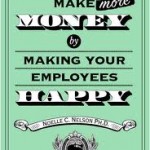This is a response to Daniel Shippen’s blog regarding Snapchat declining Facebook’s $3 billion buyout. Snapchat’s CEO, Evan Spiegel, is not interested in selling his company at the time because he believes Snapchat will be valued even higher in the near future.
 Daniel mentions that he believes that Evan Spiegel made a good decision by not selling Snapchat and I agree with him. There are many reasons to believe that Snapchat’s value with continue to grow. Many kids are decreasing their usage of Instagram and instead using Snapchat. What makes Snapchat so unique is that users don’t have to worry about the content they’re sending being held against them in the future. Also, in a span of three months from June to September, the company’s usage has nearly doubled. Last year Facebook had tried to buy Snapchat for $1 billion dollars and as you can see this year its value had tripled to $3 billion.
Daniel mentions that he believes that Evan Spiegel made a good decision by not selling Snapchat and I agree with him. There are many reasons to believe that Snapchat’s value with continue to grow. Many kids are decreasing their usage of Instagram and instead using Snapchat. What makes Snapchat so unique is that users don’t have to worry about the content they’re sending being held against them in the future. Also, in a span of three months from June to September, the company’s usage has nearly doubled. Last year Facebook had tried to buy Snapchat for $1 billion dollars and as you can see this year its value had tripled to $3 billion.
Snapchat joins a distinguished group of start-ups that have turned down multibillion-dollar offers. This group includes Groupon, Twitter, and Facebook itself. These companies are now worth much more on the public market, which is an encouraging sign for Snapchat. I believe Evan Spiegel will not regret his decision on turning down Facebook and that his company is going to continue to grow.
Response to UBC Blog:
https://blogs.ubc.ca/danielshippen/2013/11/17/snapchat-rejects-facebook/
Article Links:
http://online.wsj.com/news/articles/SB10001424052702303789604579196023009484870




